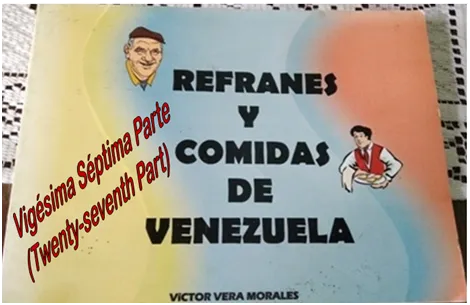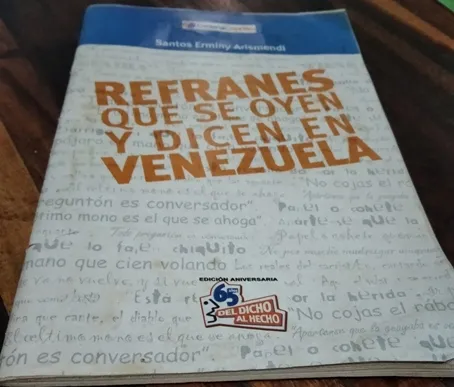

Se aplica este refrán a situaciones en las cuales toda explicación o aclaratoria, pone en evidencia lo irregular del evento; por tanto, es mejor callar que explicar.
Muy similar a un dicho que incluí en la entrega anterior, la número 26, tiene una aplicación similar, ya que en donde hay autoridad no existe ninguna persona con excusas o flojera para no cumplir con sus obligaciones y deberes, por tanto, no hay burro con reumatismo, sino burros ágiles, jajajaja.
Es un dicho que se aplica para señalar el optimismo y la esperanza que se ha de tener en el futuro; y también para dar la bienvenida a una situación o persona gratas, que siempre serán oportunas, no importa que tarden en llegar.
Nunca se debe negar lo que en un futuro incierto se puede hacer, y este refrán aconseja prudencia, pues aquello que se critica y que se dice jamás hacer, puede llegar a convertirse una realidad para nosotros.
Muchas veces las personas que son criticonas o hablan mal del prójimo, terminan haciendo precisamente aquello que han criticado. Este refrán es complemento del anterior, ya que ambos se aplican a situaciones en las cuales se puede incurrir a futuro, aún cuando en un pasado o en el presente se nieguen y critiquen.



This saying is applied to situations in which any explanation or clarification highlights the irregularity of the event; therefore, it is better to be silent than to explain.
Very similar to a saying that I included in the previous installment, number 26, it has a similar application, since where there is authority there is no person with excuses or laziness for not fulfilling their obligations and duties, therefore, there is no donkey with rheumatism, but agile donkeys yes, hahahaha.
It is a saying that is applied to indicate the optimism and hope that must be had in the future; and also to welcome a pleasant situation or person, which will always be timely, no matter how late they arrive.
You should never deny what can be done in an uncertain future, and this saying advises prudence, because what is criticized and said never to do, can become a reality for us.
Many times people who are critical or speak ill of others end up doing precisely what they have criticized. This saying is a complement to the previous one, since both apply to situations in which it can be incurred in the future, even when in the past or in the present they are denied and criticized.

Dear readers, below I place the links of the first 26 posts, in case you want to read them:
Víctor Vera Morales. (Agosto 2004). Refranes y Comidas de Venezuela. Editado por el Instituto Municipal de Publicaciones de la Alcaldía de Caracas.
Santos Erminy Arismendi. (2006). Refranes que se oyen y dicen en Venezuela. Cadena Capriles, Caracas. Venezuela.
- Fotos de mi autoría, tomada con un teléfono REDMI 8A, intervenida con WordArt / Photos of my authorship, taken with a REDMI 8A telephone, intervened with WordArt.
- Los diseños incluidos en esta publicación, han sido elaborados por mi persona con la aplicación CANVA / The designs included in this publication has been made by me with the CANVA application.
In the event that it is required to use the content or images of this post and my other publications, I would be grateful if my authorship (Fabiola Martínez) was made and the corresponding link was cited. Thank you.

 CommunityIIDiscord
CommunityIIDiscord